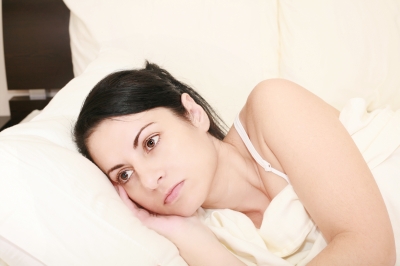2 months on: Does Paul McKenna's Insomnia Cure Work?
In I Can Make You Sleep Paul McKenna writes that you need to allow two months for your sleep pattern to become robust.
It's actually a little over two months now since I started Paul McKenna's program. So how is it going? Has my sleep drastically improved? Did I follow the program to the letter?
If you've read some of the other posts in this blog, you will know the answer to that last question was that at times I found it really challenging to do so. These times were mainly when our normal routine was thrown by events such as the late nights we had in the run-up to Christmas and then going on holiday for 2 weeks immediately afterwards. Getting ill on return was a challenge too!
Choose When To Start the Program Carefully
 If you are thinking about starting Paul McKenna's sleep program, you will more probably have more rapid success if you choose a time when you are at home throughout and when there aren't holidays such as Christmas looming.
If you are thinking about starting Paul McKenna's sleep program, you will more probably have more rapid success if you choose a time when you are at home throughout and when there aren't holidays such as Christmas looming.
But, if you are feeling like I did when I started the program, it's possibly as well to start anyway: even slow progress is better than no progress.
For me, none of the events I've already described affected my sleep patterns as much as the two days a few weeks ago when I forgot to set my alarm clock and slept in. The first night afterwards, I woke in the night and couldn't get back to sleep. Because I hadn't needed the exercises for night waking in well over a month, I had forgotten them. Since my husband was asleep beside me, I couldn't switch on the light to read McKenna's book! It was the first time I'd got out of bed in the night in some time, and I didn't enjoy it any better than before. Ironically, this was just after my last post in which I wrote that Paul McKenna's sleep program seemed to be working.
Or maybe it's not so ironic. As I've written in a previous post, beliefs do after all play an important part in how we react to life in general and this has an effect on our quality of sleep. A friend came to visit recently. She often has disturbed sleep, but at our house she slept really well for 2 nights. Then on the 3rd night she slept badly. As she told me about this the next morning, she realised that when she'd got into bed she'd had the thought, "I've had 2 good nights sleep, this won't last."
Paul McKenna's book, and most other advice I've read, stress how important it is to wake at the same time each day. So perhaps, when I slept in my sleep then took a turn for the worse because of that, or perhaps it was because I believed that it would. I haven't tested it again to find out!
That wasn't the end of it: for well over a week I kept waking in the night and taking a long time to sleep again. There were reasons for waking up: it was too hot, my husband got up at 4 am to start an early shift and his alarm woke me, my pillow had slipped and I was lying awkwardly, and so on. But none of those are reasons for lying awake though the CD, through the exercises and then some more. So I went back to I Can Make You Sleep for another read-through to see if I'd missed anything.
The main thing I'd missed was simple: that I need to make getting enough sleep my priority. I had allowed my husband's shifts to disturb me, had stayed up late to help children finish off homework or to finish work myself, and just in general wasn't placing enough value on my own needs. When I realised this I made the decision that if my sleep continued to be disturbed when my husband was on early shifts I would try the spare room for those nights. As yet I haven't needed to do that, partly because he hasn't had such early starts and partly because the one morning he did (today) I got straight back to sleep within minutes.
I also made a few other changes, related to valuing myself. However this post is getting long, and ways to improve the value you place on yourself warrants a post of its own so I will come back to that another time. Till then, sleep well!
It's actually a little over two months now since I started Paul McKenna's program. So how is it going? Has my sleep drastically improved? Did I follow the program to the letter?
If you've read some of the other posts in this blog, you will know the answer to that last question was that at times I found it really challenging to do so. These times were mainly when our normal routine was thrown by events such as the late nights we had in the run-up to Christmas and then going on holiday for 2 weeks immediately afterwards. Getting ill on return was a challenge too!
Choose When To Start the Program Carefully
 If you are thinking about starting Paul McKenna's sleep program, you will more probably have more rapid success if you choose a time when you are at home throughout and when there aren't holidays such as Christmas looming.
If you are thinking about starting Paul McKenna's sleep program, you will more probably have more rapid success if you choose a time when you are at home throughout and when there aren't holidays such as Christmas looming.But, if you are feeling like I did when I started the program, it's possibly as well to start anyway: even slow progress is better than no progress.
For me, none of the events I've already described affected my sleep patterns as much as the two days a few weeks ago when I forgot to set my alarm clock and slept in. The first night afterwards, I woke in the night and couldn't get back to sleep. Because I hadn't needed the exercises for night waking in well over a month, I had forgotten them. Since my husband was asleep beside me, I couldn't switch on the light to read McKenna's book! It was the first time I'd got out of bed in the night in some time, and I didn't enjoy it any better than before. Ironically, this was just after my last post in which I wrote that Paul McKenna's sleep program seemed to be working.
Or maybe it's not so ironic. As I've written in a previous post, beliefs do after all play an important part in how we react to life in general and this has an effect on our quality of sleep. A friend came to visit recently. She often has disturbed sleep, but at our house she slept really well for 2 nights. Then on the 3rd night she slept badly. As she told me about this the next morning, she realised that when she'd got into bed she'd had the thought, "I've had 2 good nights sleep, this won't last."
Paul McKenna's book, and most other advice I've read, stress how important it is to wake at the same time each day. So perhaps, when I slept in my sleep then took a turn for the worse because of that, or perhaps it was because I believed that it would. I haven't tested it again to find out!
That wasn't the end of it: for well over a week I kept waking in the night and taking a long time to sleep again. There were reasons for waking up: it was too hot, my husband got up at 4 am to start an early shift and his alarm woke me, my pillow had slipped and I was lying awkwardly, and so on. But none of those are reasons for lying awake though the CD, through the exercises and then some more. So I went back to I Can Make You Sleep for another read-through to see if I'd missed anything.
The main thing I'd missed was simple: that I need to make getting enough sleep my priority. I had allowed my husband's shifts to disturb me, had stayed up late to help children finish off homework or to finish work myself, and just in general wasn't placing enough value on my own needs. When I realised this I made the decision that if my sleep continued to be disturbed when my husband was on early shifts I would try the spare room for those nights. As yet I haven't needed to do that, partly because he hasn't had such early starts and partly because the one morning he did (today) I got straight back to sleep within minutes.
I also made a few other changes, related to valuing myself. However this post is getting long, and ways to improve the value you place on yourself warrants a post of its own so I will come back to that another time. Till then, sleep well!


Comments
Post a Comment